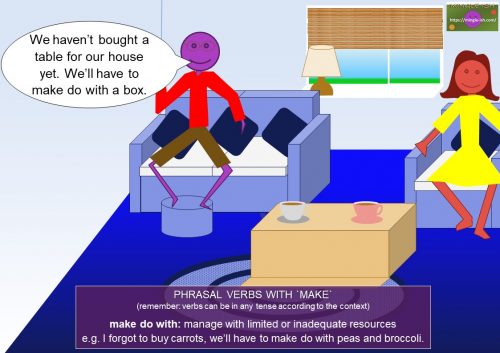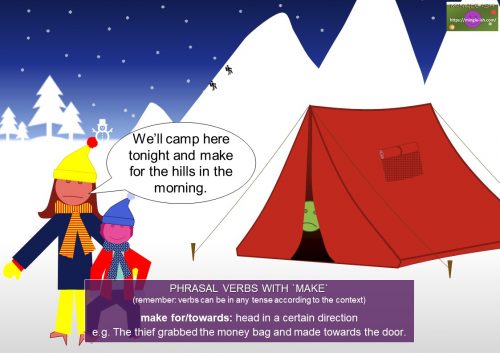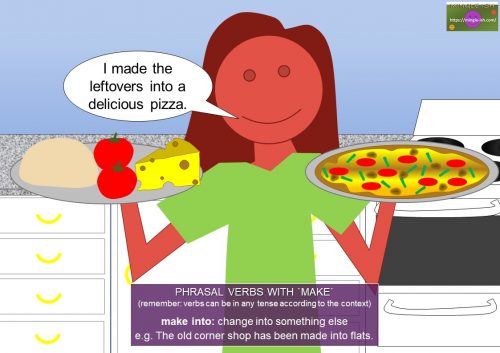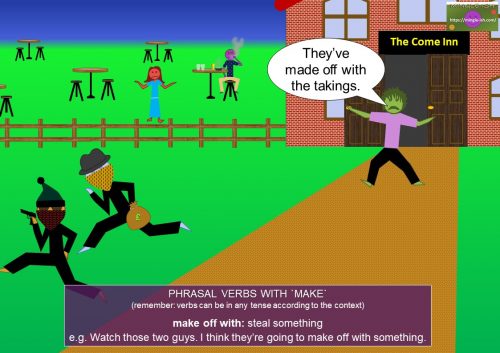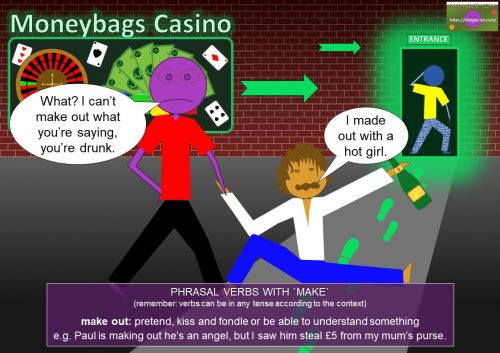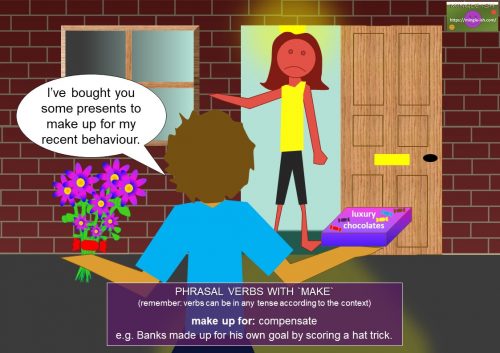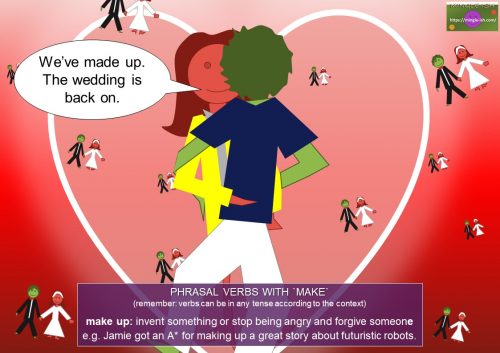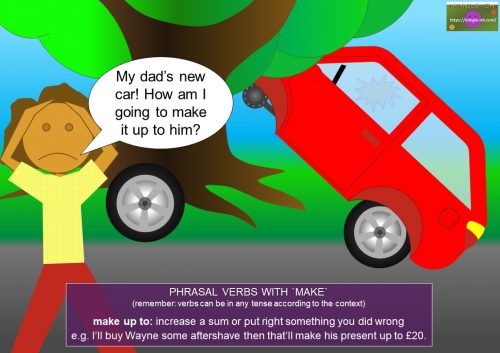The word ‘make‘ can mean many different things. As a verb, the meaning is to create by combining things or cause something to happen.
For example:
- I made blanket out of some old socks. (create)
- The hurricane made the roof break. (cause)
Make is an irregular verb. The past tense is made and the past participle is made.
phrasal verbs with make
Phrasal verbs with ‘make’ include:
- make do with
meaning – manage with limited or inadequate resources
example – I forgot to buy carrots, we’ll have to make do with peas and broccoli. - make for/towards
meaning – head in a certain direction
example – The thief grabbed the money bag and made towards the door. - make into
meaning – change into something else
example – The old corner shop has been made into flats. - make it up to
meaning – be nice to/do something for someone as you did something wrong
example – I made it up to my girlfriend for forgetting her birthday by buying her an expensive necklace. - make off with
meaning – steal something
example – Watch those two guys. I think they’re going to make off with something. - make out
meaning – pretend, kiss and fondle or be able to understand something
example – Paul is making out he’s an angel but, I saw him steal £5 from my mum’s purse. - make up
meaning – invent something or stop being angry and forgive someone
example – Jamie got an A* for making up a great story about futuristic robots. - make up for
meaning – compensate
example – Banks made up for his own goal by scoring a hat trick. - make up to
meaning – increase a sum or put right something you did wrong
example – I’ll buy Wayne some aftershave then that’ll make his present up to £20.
picture phrasal verbs with make
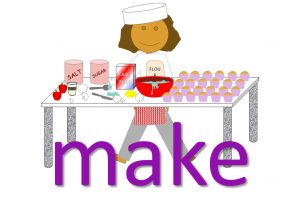
Let’s learn the meaning of the phrasal verbs that contain the verb ‘make’ in more detail and see some examples in use.
Did you know that many idiomatic expressions (idioms) in English also contain a lot of verbs? Just like phrasal verbs, idioms are a major part of the English language (slang in particular). They are used constantly amongst native English speakers and are handy to know and understand.
Now you’ve learnt all the phrasal verbs with make, how about learning the idioms with make too?
